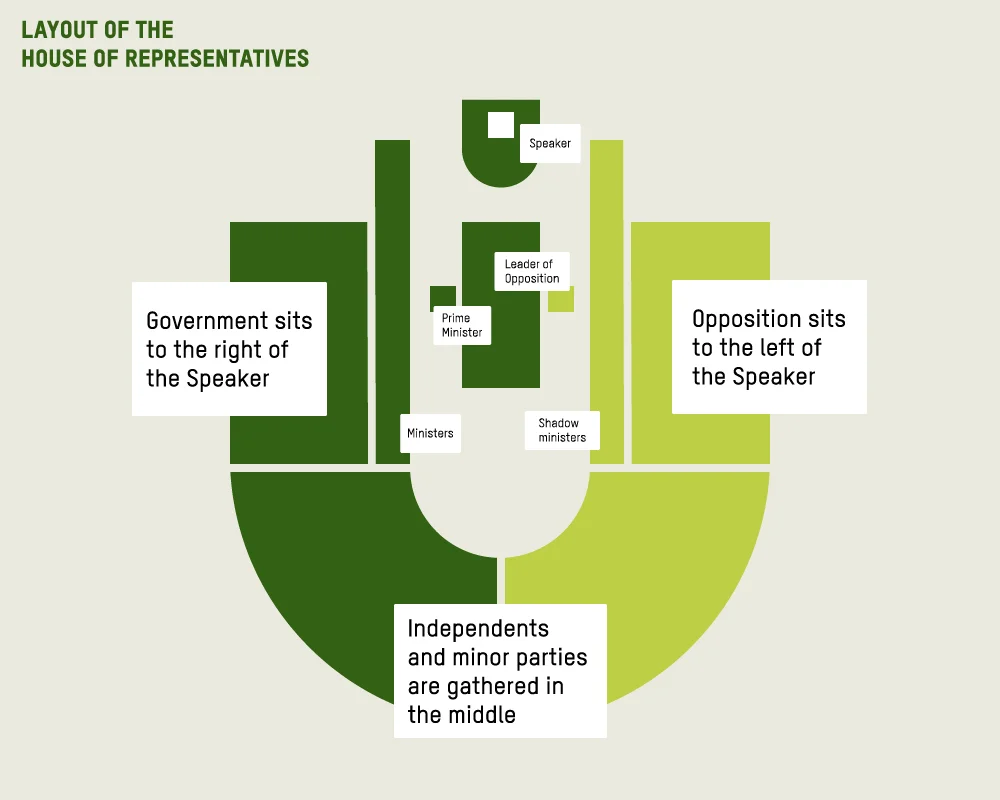How political parties work and why we have them
Australian law prescribes a number of conditions which must be met in order to form a political party. To begin with, the party must have a written constitution. It must also aim to achieve the election of members to the House of Representatives or Senate. And, it must have either 1500 members whose names appear on the electoral roll, or have at least one member who is a current member of the Federal Parliament.
The consequences for misleading the Australian Electoral Commission, even inadvertently, when registering a political party can be severe – as Pauline Hanson learned when she was sentenced to three years in jail (but later acquitted) in 2003 for an electoral offence.
The two-party system

Australian politics is known as a two-party system. This is as a result of the system of voting used to elect MPs to the House of Representatives (see how). It is almost inevitable that either the Coalition (comprising the Liberal, Country Liberal and National parties), or the Labor Party will win a majority of seats and therefore be eligible to form government.
Nevertheless, smaller parties and parliamentarians who are not linked to any political party – known as ‘independents’ – are also represented in the Federal Parliament. In the 46th Parliament, there are 2 Independents and 3 minor party members in the House, and 9 Greens and 11 other minor party members in the Senate.
What does it mean to be a political party?
By joining a political party, a person shows that they are committed to a certain set of general ideas and principles about how the country should be governed. This doesn’t mean that party members agree with every single policy put forward by their party! In fact, it is common for MPs and Senators to disagree with specific aspects of their party’s policies, or even strongly differ in opinion from their colleagues on a certain issue. However, such disagreements are usually handled internally, within the party, and it is rare for an MP or Senator to publicly ‘break ranks’, or vote differently to their party colleagues in the Parliament.
There are arguments both for and against the extent to which our democratic system relies on political parties. It could be said that strong party discipline prevents a more vibrant democracy where a diverse range of views and positions are advocated. It also creates a system where individuals are routinely required to vote in a way which compromises their own views. On the other hand, without the formal discipline of political parties, which expect their members to vote along ‘party lines’, our Parliament would be made up of a large collection of individuals with different perspectives and intentions. Forming any kind of government in such conditions would be hard and efforts to pass new laws would be fraught with difficulty.
How you can help

Oxfam’s approach
Come and learn about Oxfam’s values in today’s political landscape, and our approach to initiate change

Who are the parties?
Learn more about Australia’s various political parties through the Australian Electoral Commission
